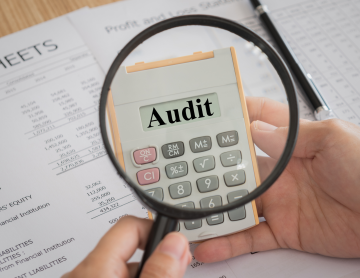Recent News & Blog / Governmental entities: How to prepare for an audit

October 14, 2025
As a governmental entity, preparing for an audit is a year-round process with several components, making it a challenging task for some. Understanding the contributing factors and timeline of an audit can help ensure you complete yours on time and accurately.
How to Prepare for Your Next Audit
As your entity prepares for its next audit, the following tips can help you get ahead of the curve:
- Keep a list of the changes in processes, procedures and employees that occurred throughout the year, including internal controls.
- Don't wait until the audit to reach out to your auditor. Keep them updated as significant events arise, including complex or unusual transactions and operational changes.
- Ensure timely reconciliations, journal entry approvals and supporting documentation for all financial activity is kept on file and easily accessible.
- For grants, ensure you understand the reporting requirements, allowable uses, and timeline for use of funds. This includes tracking activity, reading the grant contract carefully, and no double dipping.
- A single audit is required if an organization expends $750,000 or more in federal funds in a fiscal year, or $1,000,000 effective for fiscal years beginning on or after October 1, 2024. This includes additional compliance testing and internal control testing.
When it is time to begin your audit, discuss a timeline with your auditor that includes due dates and reporting requirements. You should also work together to schedule draft meetings and presentation meetings. During this time, ensure that goals and expectations are set for you and your staff, and establish a secure and effective method to share information and access files.
What to Ask Your Auditor
The audit process can, and should, be collaborative. As you work alongside your auditor, asking these questions can leverage the audit as a tool for organizational improvement:
- How can our organization improve, and what are the best practices for internal controls and procedures? Previous audit results can be useful, including findings, internal control deficiencies, and proposed journal entries. Be sure that your Board and auditor are addressing any “hot topic” items.
- What education and training should our board members, management, and staff be partaking in?
- How can we best make a financial plan for the future? Consider putting together a cash flow analysis that includes trends, future planning, and an analysis of operations by department
Preparing for an audit requires careful planning and attention to detail. By following these tips, you can successfully navigate the audit process and ensure accurate financial reporting for your organization.
At SEK, we offer more than simply fulfilling audit requirements for our clients. When your entity works with us, we establish a partnership that enhances your financial transparency and drives sustainable growth. Learn more about SEK’s Audit and Assurance services, and feel free to contact us with any questions.